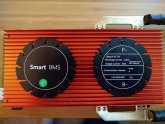How many times have we heard the question, "What's the best BMS for my situation?" on this forum and how many times have we responded, "Well, it depends..."? We then go on post-after-post, page-after-page talking about what BMS's are there to do, what BMS's are available, posting caveats and more-and-more links to more-and-more BMS products.
It is a question that nobody on this forum has a 'go to' answer for.
Is anybody willing to 'do the digging' on this? Identify all (most common) BMS solutions, compare and contrast feature sets, identify limitations and come up with 'suggested further investigation' on product x, y and z for scenario a, b and c?
Note: I very purposefully do not suggest we come up with a Top10 BMS's because the 'best' BMS might not be the 'best' for every scenario.
I have never purchased a BMS before in my life, have literally ZERO first-hand experience, so I don't think I'm the best candidate to take this on ... but I know some of you regulars have such experience and some of you have time to spare to help our forum members.
Any takers?
I am aware of the following BMS manufacturers / products:
It is a question that nobody on this forum has a 'go to' answer for.
Is anybody willing to 'do the digging' on this? Identify all (most common) BMS solutions, compare and contrast feature sets, identify limitations and come up with 'suggested further investigation' on product x, y and z for scenario a, b and c?
Note: I very purposefully do not suggest we come up with a Top10 BMS's because the 'best' BMS might not be the 'best' for every scenario.
I have never purchased a BMS before in my life, have literally ZERO first-hand experience, so I don't think I'm the best candidate to take this on ... but I know some of you regulars have such experience and some of you have time to spare to help our forum members.
Any takers?
I am aware of the following BMS manufacturers / products:
- Daly BMS
- Ant BMS
- Chargery
- SBMS0
- TinyBMS
- Orion Jr
- Batrium




